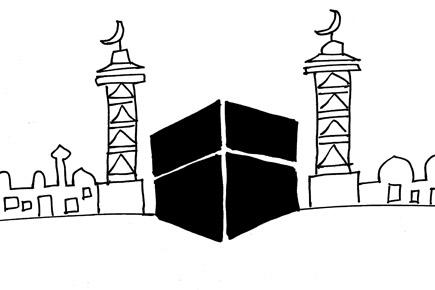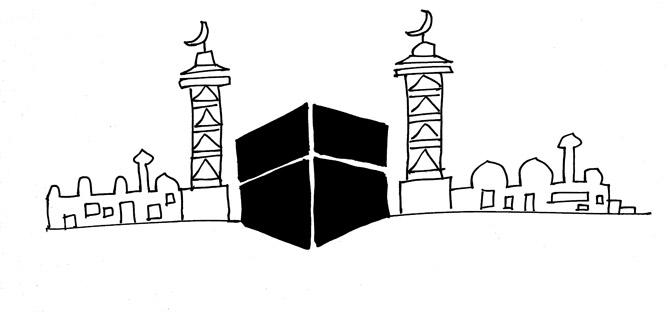Once upon a time, a group of Hindus insisted that that the mosque in Ayodhya was built on the remains of a Hindu temple that marked the birthplace of Ram. The matter went to court.

 Once upon a time, a group of Hindus insisted that that the mosque in Ayodhya was built on the remains of a Hindu temple that marked the birthplace of Ram. The matter went to court. Academicians, historians, archaeologists and lawyers argued the case for decades. Like all things Indian, records were inconclusive. And, the traditional spirit of ‘adjustment’ drew the ire of activists. So, a bunch of fiery impatient men stormed the mosque, deemed ‘disputed structure’, and tore it down. What followed were vicious riots where hundreds were killed. Some demanded justice. Others vengeance. Western academicians who wrote on Ramayana invariably began their essay by referring to the Babri Masjid demolition, and used it as yet another stick to mock the Hindu reverence for Ram. Hindus accused them of Hinduphobia. A simmering rupture exposed itself. More violence followed. Now, across India, temples and mosques and other disputed structures, are surrounded by fences and security guards, determined to ensure religious fanatics do not rip apart the secular fabric of the nation.
Once upon a time, a group of Hindus insisted that that the mosque in Ayodhya was built on the remains of a Hindu temple that marked the birthplace of Ram. The matter went to court. Academicians, historians, archaeologists and lawyers argued the case for decades. Like all things Indian, records were inconclusive. And, the traditional spirit of ‘adjustment’ drew the ire of activists. So, a bunch of fiery impatient men stormed the mosque, deemed ‘disputed structure’, and tore it down. What followed were vicious riots where hundreds were killed. Some demanded justice. Others vengeance. Western academicians who wrote on Ramayana invariably began their essay by referring to the Babri Masjid demolition, and used it as yet another stick to mock the Hindu reverence for Ram. Hindus accused them of Hinduphobia. A simmering rupture exposed itself. More violence followed. Now, across India, temples and mosques and other disputed structures, are surrounded by fences and security guards, determined to ensure religious fanatics do not rip apart the secular fabric of the nation.

Illustration/Devdutt Pattanaik
ADVERTISEMENT
Meanwhile, in Mecca, Saudi Arabia the holiest city in Islam, which houses the Kabba, that is the focus on the Hajj pilgrimage that is mandatory for Muslims, something extraordinary is happening. The Government of Saudi Arabia, to cater to the rising number of pilgrims visiting the city is demolishing heritage sites, tombs and mosques associated with the Prophet Muhammad, his family and early Islamic history. These are being replaced by state-of-the-art skyscrapers that house hotels and shopping malls and apartment blocks, alarming Islamic scholars and art historians, whose protests are being unheard, and who are watching helplessly an ancient heritage being wiped out in the name of practicality and modernity and development. They fear that underlying this apparent pragmatism is a puritanical ideology that does not appreciate the veneration of anything or anyone but God. In this version of Islam, the Shia veneration of the Prophet’s family, and for leaders known as Imams, and for dargahs, is considered inappropriate. Even Sufism is seen as sin, a form of polytheism.
Thus, we see two different outcomes to the destruction of venerable Islamic structures in two different locations. In India, Babri Masjid demolition leads to rage and riots, and international condemnation. In Saudi Arabia, the demolition of mosques, tombs and heritage buildings, encouraged by a pragmatic and some say, puritanical, government, is being grudgingly tolerated.
Why the difference? Is it because, in India, the government is not Islamic and the demolition involved Hindu fanatics who disregarded the law? Is it because in Saudi Arabia, the government is Muslim, and the royal family is the traditional guardian of the Mecca shrine and it is the local clerics who decide what is holy and what is not?
Perhaps, the difference reveals that outrage over demolition has nothing to do with rationality. It has to do with ‘meaning’. What meaning do we give to the buildings being demolished and to the demolishers? To understand the difference in today’s over-sensitive hyper-religious world, an analogy helps: ‘It is okay if I crack jokes about my mother. But you cannot crack jokes on my mother. If you do, then I will be outraged.’ How do we expect the ‘rational’ judicial systems to resolve this issue remains the question.
The author writes and lectures on the relevance of mythology in modern times. Reach him at devdutt@devdutt.com
 Subscribe today by clicking the link and stay updated with the latest news!" Click here!
Subscribe today by clicking the link and stay updated with the latest news!" Click here!







